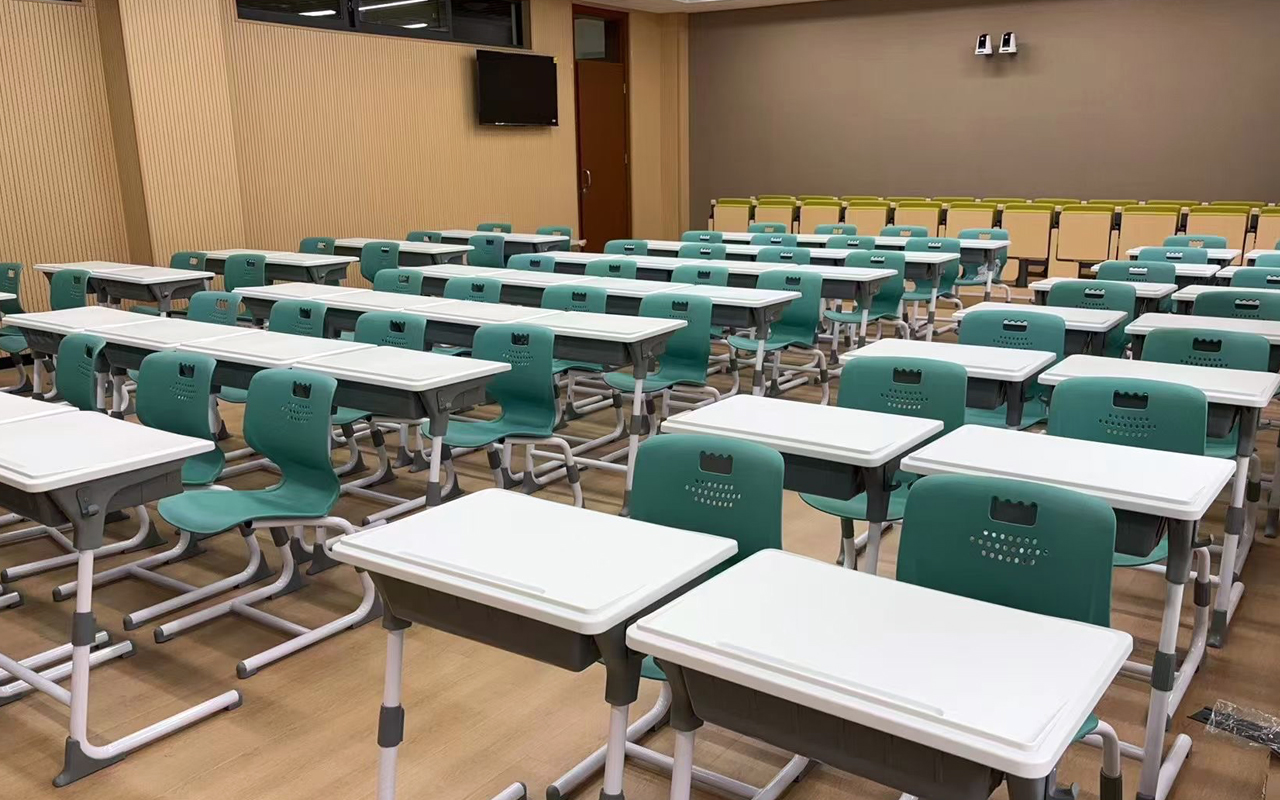Traditional classroom seating presents several clear limitations that directly affect the quality of learning. Some common challenges include:
1. Physical Barriers
Traditional audience seating is highly restrictive. Fixed school desks and chairs prevent students from moving freely. Rearranging the room to form small groups or create open discussion circles becomes impractical. Visual communication between students is also obstructed, as all seats face the front, which discourages peer-to-peer interaction.
2. Psychological Impact
Conventional educational seating also has a direct psychological impact on the students. In classrooms where students are separated by rows, proximity to the teacher often creates an uneven experience. Those seated at the back may feel overlooked or less valued. Over time, this physical distance can influence the participation, confidence, and motivation of students.
3. Interaction Restrictions
In a traditional educational environment, students find it extremely difficult to interact with each other. Static seating does not support collaborative teaching strategies. Group activities, quick pair work, and hands-on projects are harder to manage when furniture cannot be moved.
4. Creativity Inhibition
Finally, the uniformity of the layout can suppress creative thinking. When every student sits in the same position, facing the same direction, under the same structure, the environment discourages individual expression. It signals that there is only one correct way to sit, listen, and learn. That message runs counter to the goals of modern education, which increasingly values creativity, adaptability, and innovative learning.
These limitations highlight the need for a more flexible and interactive approach. Interactive educational seating addresses all these problems, offering a more dynamic and engaging learning environment. Let’s look at the advantages of interactive seating.
Advantages of the Interactive Educational Seating
Interactive educational seating introduces a level of versatility that traditional classroom furniture lacks:
1. Flexibility
As the name implies, interactive and flexible seating for the classroom can be easily moved, rotated, or repositioned, enabling educators to switch between teaching formats within a matter of minutes. In particular, flip-top training tables offer numerous benefits to modern classrooms. Whenever teachers want to create space in the middle of the classroom for some interactive activity, these movable tables can quickly be folded and stored against the wall so that the classroom space can easily be utilized.
2. Interactivity
The classroom flexible seating supports diverse teaching methods, including independent study, group collaboration, and project-based activities. It promotes communication and facilitates smooth transitions between different instructional formats, thereby maximizing student cooperation.
3. Durability
High-quality interactive educational seating is constructed from durable materials that resist wear and tear under constant use. They are built to handle daily movement, stacking, and the general wear that comes with an active learning environment.
4. Easy Cleaning and Maintenance
The ease of maintenance and simple cleaning requirements make flexible seating chairs well-suited for high-traffic classroom environments. Smooth surfaces and durable finishes resist stains and scratches, allowing staff to maintain hygiene standards with minimal effort.
5. Technology Integration
Another notable advantage of interactive educational seating is its potential to integrate with technology. Many interactive desks come with built-in cable management, device slots, or charging capabilities. This design consideration accommodates modern learning tools and permits students to transition between paper-based and digital tasks without clutter or technical obstacles.
Post time: Aug-09-2025








